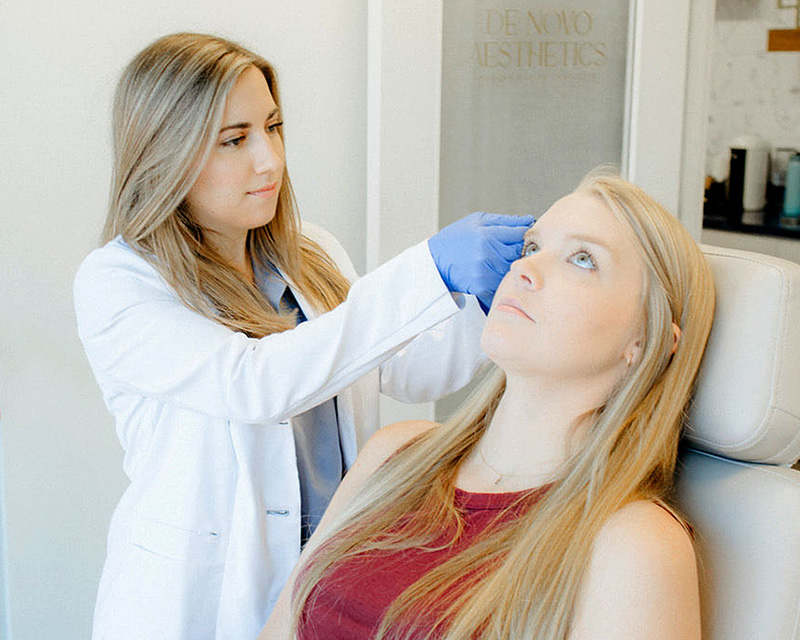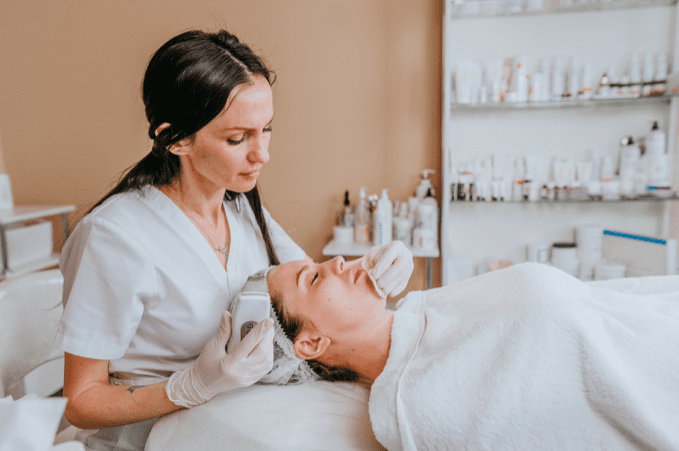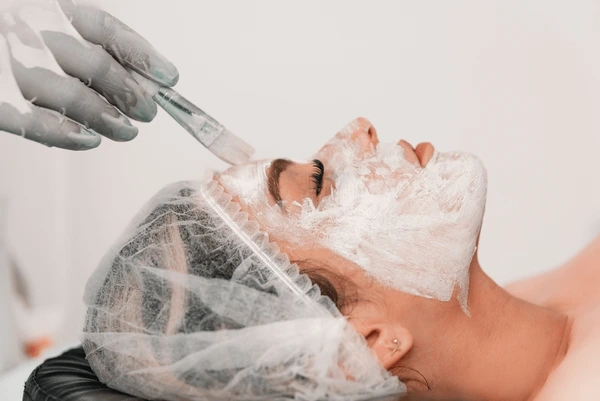
Being a successful aesthetician means more than completing the course. It is all about education, experience, keeping oneself in the loop all the time, and getting adept at those steps, certifications, and the different range of opportunities regarding the career. This article provides an essential guideline on how to be a successful aesthetician; the paper describes the minimum requirements and how to practice effectively to become a successful aesthetician.
What Education Is Required to Become an Aesthetician?
To become an aesthetician, you need to undertake a state-approved cosmetology or aesthetician program, which generally has a curriculum on skin care treatment, hair removal, and makeup application, followed by a state licensing examination.
The first absolutely necessary step to becoming an aesthetician is to receive some type of education. Cosmetology or aesthetician programs approved by the state, in general, are the places where one gathers all the knowledge applied to skin care, hair removal, and makeup, among others. For the most part, these programs normally last between 6 months and one year and tend to be a mix of both theoretical knowledge and practical work.
Most likely, after graduation, you will sit for a state examination, which is likely to include both theoretical and practical parts of the exam. This license will enable you to work legally as an aesthetician. Workshops and in-depth programs serve to add to your advanced education with intriguing information that will get you up to date on all the freshest things.
How Do You Get Certified as an Aesthetician?
Certification includes completion of an accredited aesthetician program and the passing of a state licensing exam. Some states also require continuing education. Further certifications in specialized treatments enhance your credentials.
First, you would have to complete an accredited aesthetician program that would meet the education requirements for your state. This means that after your coursework and practical training, you will need to pass a state licensing exam, proving not only your theoretical knowledge but also practical skills.
Some states require continuing education credits in order to keep your license current since the industry often changes. You can further pursue specialized certifications in treatments like chemical peels, laser therapy, or microdermabrasion by building on your expertise, thereby creating career chances in high scope. Certification will mean literally the opening of doors to credible and trustworthy clients.

What are the Requirements for Licensing for an Aesthetician?
Licensing requirements for aestheticians will vary by state, but most require completion of a certified program with passage of a state exam. Many states also require hours of continuing education to maintain current licensure. Be sure to check your state’s regulations prior to practice.
Requirements for licensing vary from state to state for aestheticians, but most require an accredited graduate program and a pass in the respective licensing examination. In most cases, you are going to take a written test and a practical exam as part of the licensing exam. Some states may require even more, such as a minimum number of hours of training or continuing education credits to maintain your license.
It is highly important to know your state’s specific regulations so that, if not complied with, appropriate fines can be charged, and licensing could be revoked. Keeping your skills current by attending approved courses also keeps you competitive in the marketplace.
What Careers Are Available to Aestheticians?
Aesthetic professionals have places of work like salons, spas, dermatology clinics, and medical spas. Others get involved in specialty fields like medical aesthetics. Many work as freelance professionals or run their own businesses.
Jobs in aesthetics are very varied and rewarding. You can work in salons, day spas, or wellness centers—basically, just about anywhere beauty and skincare treatments are offered. If you are more medically oriented, you can work in dermatology clinics or medical spas, where more advanced procedures are conducted, such as chemical peels and laser treatments.
Some aestheticians will find a niche and specialize in a particular area of interest, such as bridal makeup or anti-aging treatments. You can either freelance or open your own skincare business. This will grant you more freedom and time to build up your brand, specializing in servicing a particular kind of clientele.

What Skills Are Essential for Aestheticians?
Three key skills possessed by good aestheticians are strong communication, meticulous attention to detail, and knowledge of skincare products and techniques. Furthermore, aestheticians should have a manual dexterity for treatment performance and a commitment to continued education.
Of course, all successful aestheticians possess a blend of technical and interpersonal skills. Product, technique, and tool knowledge are very important, especially when it comes to skincare. Additionally, manual dexterity for performing delicate treatments is a must. Good communication skills are needed to interact and understand the needs of the client to recommend treatments.
Attention to detail makes every treatment safe and effective. Being updated in one’s profession is a vital part an aesthetician needs to focus on through continuous education. Such skills—the ability to build rapport with clients, along with a passion for skincare—put you way ahead on the path toward a long list of loyal clients and a very successful career.
How Do Aestheticians Keep Themselves Competitive in the Industry?
An aesthetician would keep herself competitive by keeping up-to-date with skills, developing a niche or specialty service, and creating solid relationships with clientele. Keeping abreast of the industry and investing in higher education serve as ways to set themselves apart.
Continuous learning within aesthetician practice is what keeps one in the running. Attend workshops, work on advanced certifications, and always be at the top with the new technologies and products available. The second major selling point is the provision of specialized services to extremely specific, niche markets.
Excellent customer service and highly personalized care will ensure long-term relationships, which will lead to repeat business and word-of-mouth marketing. Social media and internet platforms can be used further to exhibit work and bring in new clients. Keep fast and sharp at your education and marketing to remain relevant within this evolving industry.
Conclusion
It requires a mix of education and certification with continuous development in aesthetician practice. Acquiring the answerable skills and knowledge of licensing requirements and exploration of career options are important to being successful. Keeping yourself updated about industry trends and challenges will develop a rewarding and successful career. Everything, from entry to professional growth, needs dedication and continuous learning.

